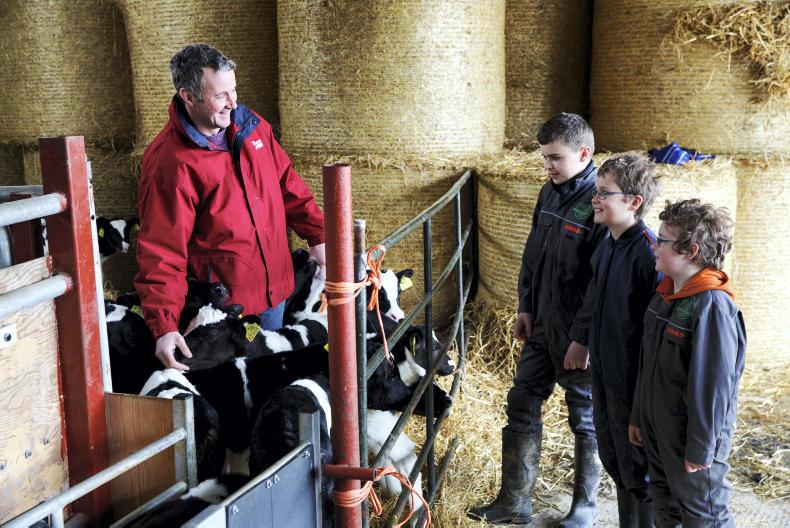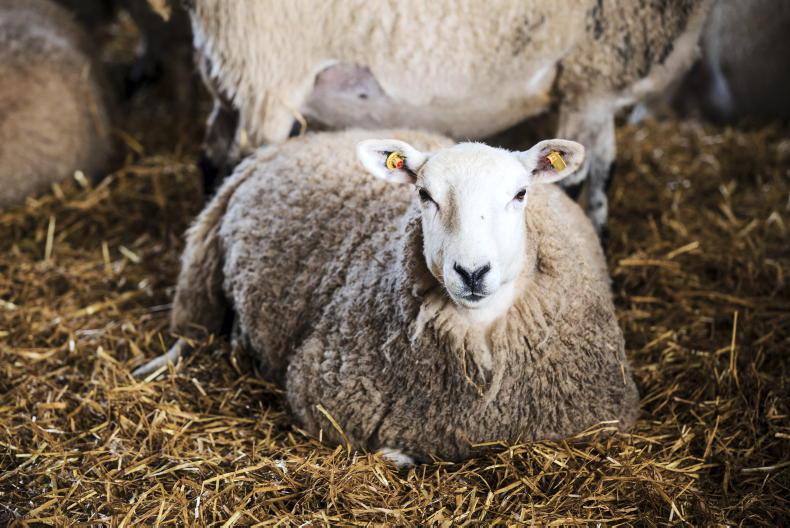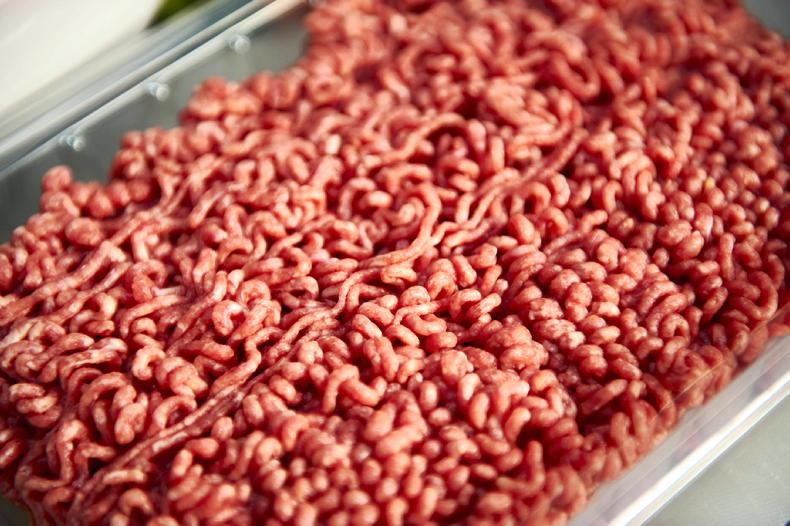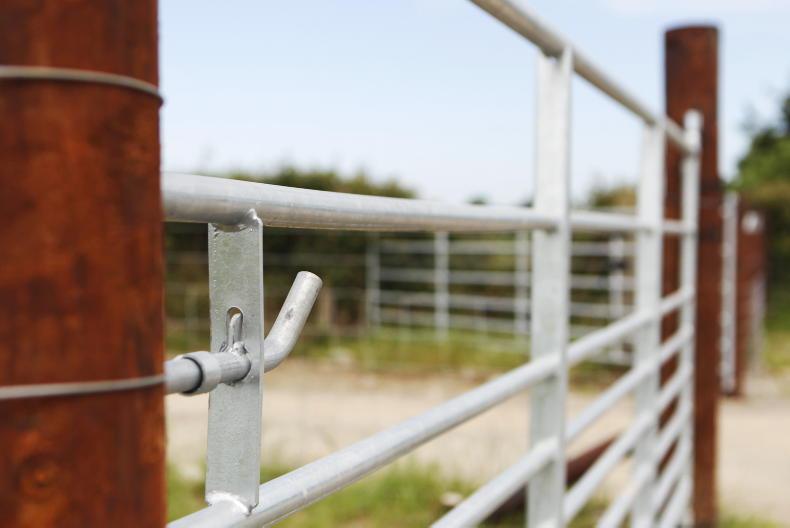Overall winners of the 2019 NDC & Kerrygold Quality Milk Award, Waterford farmers Kieran, Ann Hearne and family hosted a webinar as COVID-19 restrictions prevented farmers from physically attending a farm walk on the farm.
One thing that came across loud and clear during the discussion was the fact Kieran reckons milk recording is essential to maintaining quality milk. Speaking on the webinar, Kieran said: “Milk recording – it’s a no brainer. For cell count management alone I think it’s money well spent. Milk recording keeps control of it the whole time. For example, recently we saw a spike in the co-op SCC [Somatic cell count], we did a milk recording, and we had one heifer that has no clinical signs of mastitis, but she had a cell count of 3m."
In terms of extra wor associated with milk recoding Kieran said: “There is extra work, but the benefits are worth it. I wouldn’t use [extra work as an excuse] to stop it – get help if you need it.”
Dry cow therapy
Another topic discussed was selective dry cow therapy. Kieran stold those watching: “Ironically it didn’t go well for us the first year – in fact it cost us a lot of money. We lost quarters, we lost cows as a result."
When questioned on what happened Kieran said: “Look I simply didn’t do it right. We picked cows at random from what we thought were low cell count. The second year we picked out the lowest 15% on cell count and then we looked at these cows individually to ensure they had no mastitis during the year. Our threshold now is cows less than 70,000 in SCC and no mastitis during the year. We’ll go to increase the percentage of the herd where we use selective dry cow therapy next year.”

Kieran Hearne and his sons Laurence, Conor and Stephen in the calf shed.
Kieran's top tips for quality milk
• Set the farm system up right – split up the workload and use contractors when required.
• Use technology to minimise the workload.
• Invest in an auto washer for the parlour.
• Attention to the detail is vital in everything you do.
• Hot wash the plant twice a day.
• Pre- and post-spray the cows.
• Use milk recording – a no brainer!
Seamus Kearney, Teagasc advisor: “We need more herds milk recording. At the moment less than 50% of herds are milk recording and about 43% of the cows in the country are milk recorded.”
“About one third of nitrogen used in the country is CAN (27% N) and if we could move half that CAN to protected urea then it would remove the equivalent greenhouse gas emissions of 100,000 cows."
Brendan Walsh, Glanbia quality milk adviser: “A couple of changes we have seen in the industry this yea. Firstly chlorine free detergents need to be used on farm, secondly, antimicrobial resistance is building up so there are some critical antibiotics that won’t be as effective if we continue to use them.”
Kieran Hearne on breeding: “We use a team of genomic bulls for AI – last year combined €309 EBI average. EBI of the calves this year is €270. We use all Friesian, 95% AI – nine weeks of AI and three weeks of stock bull and 91% calved in six weeks.”
Kieran Hearne on milk solids: “Milk protein percentage is 3.80% now, up from 3.73%, and we delivered 506kg of milk solids per cow.”
Brendan Walsh, Glanbia quality milk adviser: “All Glanbia suppliers have gone chlorine-free since April.”
Teagasc held a webinar from the Hearne family farm, national winners of the 2019 NDC & Kerrygold Quality Milk Awards on Tuesday 30 June. The event was organised by Teagasc, with the support of Glanbia Ireland, the National Dairy Council and Ornua, and celebrates the excellence of Irish dairy farming highlighted annually by the NDC & Kerrygold Quality Milk Awards.
Read more
Deise family farm deliver higher profits
Hearne family claim NDC & Kerrygold Quality Milk Award
Overall winners of the 2019 NDC & Kerrygold Quality Milk Award, Waterford farmers Kieran, Ann Hearne and family hosted a webinar as COVID-19 restrictions prevented farmers from physically attending a farm walk on the farm.
One thing that came across loud and clear during the discussion was the fact Kieran reckons milk recording is essential to maintaining quality milk. Speaking on the webinar, Kieran said: “Milk recording – it’s a no brainer. For cell count management alone I think it’s money well spent. Milk recording keeps control of it the whole time. For example, recently we saw a spike in the co-op SCC [Somatic cell count], we did a milk recording, and we had one heifer that has no clinical signs of mastitis, but she had a cell count of 3m."
In terms of extra wor associated with milk recoding Kieran said: “There is extra work, but the benefits are worth it. I wouldn’t use [extra work as an excuse] to stop it – get help if you need it.”
Dry cow therapy
Another topic discussed was selective dry cow therapy. Kieran stold those watching: “Ironically it didn’t go well for us the first year – in fact it cost us a lot of money. We lost quarters, we lost cows as a result."
When questioned on what happened Kieran said: “Look I simply didn’t do it right. We picked cows at random from what we thought were low cell count. The second year we picked out the lowest 15% on cell count and then we looked at these cows individually to ensure they had no mastitis during the year. Our threshold now is cows less than 70,000 in SCC and no mastitis during the year. We’ll go to increase the percentage of the herd where we use selective dry cow therapy next year.”

Kieran Hearne and his sons Laurence, Conor and Stephen in the calf shed.
Kieran's top tips for quality milk
• Set the farm system up right – split up the workload and use contractors when required.
• Use technology to minimise the workload.
• Invest in an auto washer for the parlour.
• Attention to the detail is vital in everything you do.
• Hot wash the plant twice a day.
• Pre- and post-spray the cows.
• Use milk recording – a no brainer!
Seamus Kearney, Teagasc advisor: “We need more herds milk recording. At the moment less than 50% of herds are milk recording and about 43% of the cows in the country are milk recorded.”
“About one third of nitrogen used in the country is CAN (27% N) and if we could move half that CAN to protected urea then it would remove the equivalent greenhouse gas emissions of 100,000 cows."
Brendan Walsh, Glanbia quality milk adviser: “A couple of changes we have seen in the industry this yea. Firstly chlorine free detergents need to be used on farm, secondly, antimicrobial resistance is building up so there are some critical antibiotics that won’t be as effective if we continue to use them.”
Kieran Hearne on breeding: “We use a team of genomic bulls for AI – last year combined €309 EBI average. EBI of the calves this year is €270. We use all Friesian, 95% AI – nine weeks of AI and three weeks of stock bull and 91% calved in six weeks.”
Kieran Hearne on milk solids: “Milk protein percentage is 3.80% now, up from 3.73%, and we delivered 506kg of milk solids per cow.”
Brendan Walsh, Glanbia quality milk adviser: “All Glanbia suppliers have gone chlorine-free since April.”
Teagasc held a webinar from the Hearne family farm, national winners of the 2019 NDC & Kerrygold Quality Milk Awards on Tuesday 30 June. The event was organised by Teagasc, with the support of Glanbia Ireland, the National Dairy Council and Ornua, and celebrates the excellence of Irish dairy farming highlighted annually by the NDC & Kerrygold Quality Milk Awards.
Read more
Deise family farm deliver higher profits
Hearne family claim NDC & Kerrygold Quality Milk Award











SHARING OPTIONS